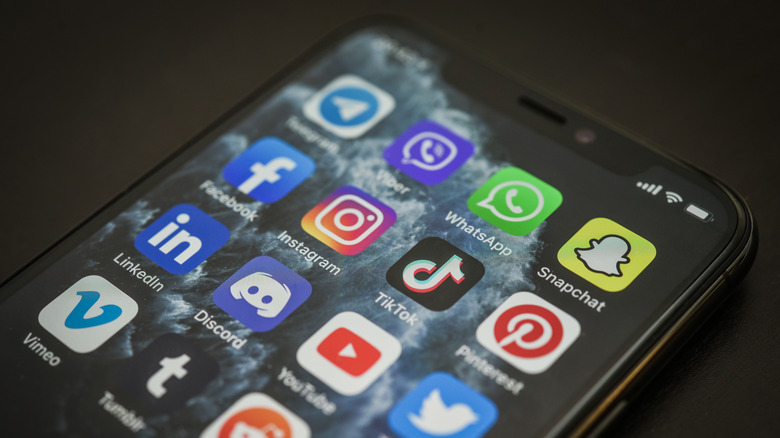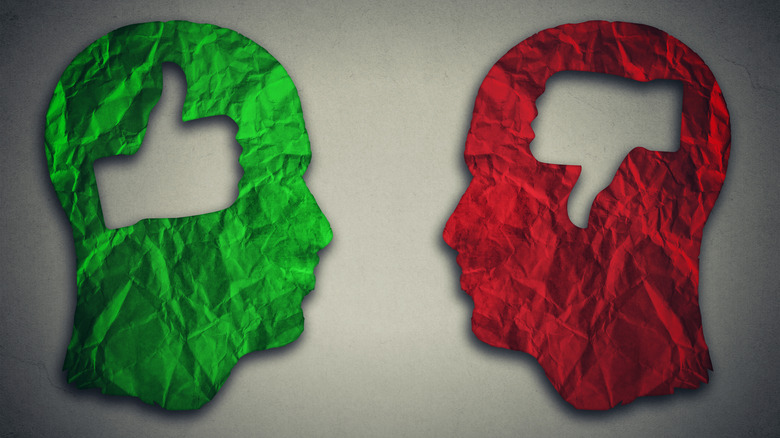How To Recognize If Your Social Media Habits Are Unhealthy
Do you remember those "This is your brain on drugs" commercials from the '80s and '90s featuring strong imagery of an egg bubbling in a frying pan? If they remade those commercials today, but instead of drugs they presented an image and said, "This is your brain on social media," what do you think that concept would look like?
In the last 19 years, since the launch of Myspace, social media has become an integral part of daily life. According to Smart Insights, nearly 60% of the world's population is on social media with the average person engaged for 2.5 hours a day. The Addiction Center reports that 5-10% of Americans meet the criteria for having a full-fledged social media addiction, meaning they spend so much time using apps that it has become detrimental to other areas of their lives. So what does a healthy relationship with social media look like, and when does it stop being a fun, social tool and start becoming a problem?
Signs your social media habits are unhealthy
There are many experts who would say that social media does no good to the human psyche. According to the BBC, several studies have linked social media to higher rates of anxiety, depression, sleep disorders, and struggles with both self-esteem and interpersonal relationships. However, the National Alliance on Mental Illness (NAMI) claims that the use of social media isn't all bad. When used correctly it can be a tool for people to share their voices and find community. It can create a space for generations to come together and can keep families and friends connected, whether they are near or far.
Like most things, your experience with social media depends on how you use it. When speaking with Thrive Works, licensed counselor Julie Williamson revealed a few signs indicating you might be forming an unhealthy bond with your socials. If you find that you leave a scrolling session feeling lonelier or more inadequate than you did before you started, there's a good chance you're putting too much weight on something that isn't real. Additionally, if you are having more social interactions online than you are in person, or you find that social media is distracting you from accomplishing important tasks, it might be time to have a sit down with yourself.
How to make social media work for you
Perhaps you think you've developed an unhealthy bond with some of the apps on your phone. That doesn't mean you have to throw in the towel and become a hermit in the basement, isolating yourself further. You can turn this around.
MIT News suggests making little edits to your life, like starting your day with intention. Rather than reaching for the phone the minute your little peepers pop open, try lying in bed and doing a quiet meditation or some light stretching before going to make your morning coffee. When you do log on to your social media apps, follow or engage with other users that bring positivity to your life and make you feel good about yourself. Another suggestion is to enjoy the moment with friends and family, especially after you've posted pics of your real-life social gatherings. In short, post and get offline to appreciate what is surrounding you.
Finally, if you find that you can't stay away from mindlessly scrolling throughout the day, delete the apps on your phone. (Gasp!) You don't need to give them up entirely if you don't want to. Try having them on a laptop or tablet you keep at home, so you can only indulge when you have the time (via MIT News).



